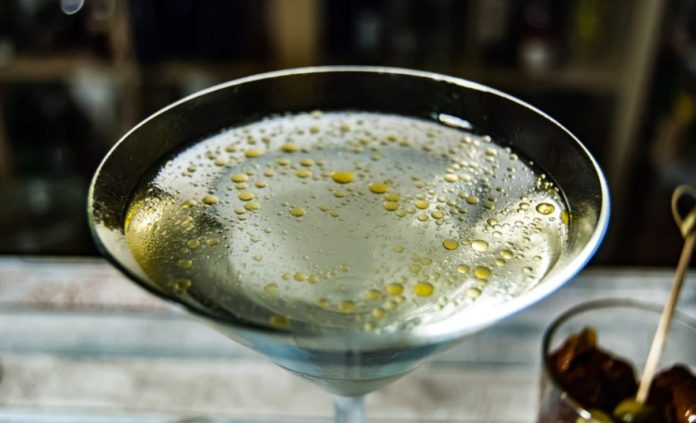You may have noticed that the older you are, the less alcohol you need to have a hangover the next day. The cause is age and the processes that have changed the body.
“Alcohol has numerous effects on the body ranging from the brain down to our liver and guts,” explains Dr. Niket Sonpal, a New York-based gastroenterologist. “Those effects increase as we get older.”
The impact of alcohol on health as you age depends on the frequency and amount of alcohol. However, there are some changes that occur naturally in the body around certain ages and that can be aggravated by alcohol consumption.
- Does This Mean We Stopped Being Animal and Started Being Human Due to ‘Copy Paste’ Errors?
- The One Lifestyle Choice That Could Reduce Your Heart Disease Risk By More Than 22%
- Aging: This Is What Happens Inside Your Body Right After Exercise
- Immune-Boosting Drink that Mimics Fasting to Reduce Fat – Scientists ‘Were Surprised’ By New Findings
- Gun Violence in America: What They Don’t Talk About at the Debate
30 years
“Although it is joked about in comedies and in memes, the ability to recover from a night of drinking does reduce after 30,” said Sonpal. If you drink a lot, the years of alcohol add up with age.
In addition, it has been shown that as the body ages, it has less water and therefore is more prone to dehydration. Alcohol can remove more water from the body and further increase the chances of dehydration.
“Chronic heavy drinking is also generally associated with dehydration and increased inflammation in the body,” the doctor noted.
“Therefore, after the age of 30, you notice more aches, pains and migraines after a night of drinking. It is entirely due to dehydration, ” the doctor stressed.
40 years
At age 40 is when one begins to really see the impacts of alcohol on the face. “This is the age when our face begins to show our age,” Sonpal said.
Alcohol can cause a deficiency in nutrients like vitamin A6, which helps cell regeneration and collagen reproduction. Both are essential for youthful skin. So the person who drinks a lot of alcohol will see their face wrinkled faster than someone who does not drink alcohol and is more marked at this age, the expert added.
The skin is the largest organ in the body, and alcohol can have a commensurate impact, said dermatologist Stacy Chimento, MD.
“Alcohol dehydrates the body, and one of the first places you’ll notice it is on the skin. It also causes inflammation, which can manifest itself in spots, redness, roughness, and dehydration,” Dr. Chimento said.
50 years
By the age of 50, sleep disturbances caused by alcohol can be more pronounced. “Alcohol also aggravates the sleeping difficulties that often appear after age 50,” said Dr. Sonpal.
“Many people believe that drinking alcohol helps you sleep, but it actually prevents deep sleep. So you may fall asleep, but you won’t have a good night’s sleep. That’s why hangovers are even worse at this age,” Dr. Sonpal explained.
This occurs because alcohol reduces the time spent in the rapid eye movement (REM) phase, clarified neuroscientist Kristen Willeumier.
“REM sleep is critical to healthy brain function as it is essential in emotional regulation and the consolidation and retention of memories,” said the doctor.
- Does This Mean We Stopped Being Animal and Started Being Human Due to ‘Copy Paste’ Errors?
- The One Lifestyle Choice That Could Reduce Your Heart Disease Risk By More Than 22%
- Aging: This Is What Happens Inside Your Body Right After Exercise
- Immune-Boosting Drink that Mimics Fasting to Reduce Fat – Scientists ‘Were Surprised’ By New Findings
- Gun Violence in America: What They Don’t Talk About at the Debate
60 and 70 years
Years of alcohol consumption damage the liver, and this can be accentuated after the age of 60.
“From the age of 60, the body’s circulation begins to slow down and less blood reaches the liver, so the process slows down and more toxic metabolites can accumulate,” Sonpal revealed.
As aging often brings with it more prescription drugs, the body has to work harder to process both drugs and alcohol.
“After 60 and 70 we probably also develop a few chronic ailments that are going to need a few medications. Alcohol competes with medications that are processed by the liver and can cause many interactions.”
Medications known to react with alcohol include anxiolytics, antibiotics, antidepressants, antihistamines, blood thinners, and drugs used to treat diabetes.
Some mixtures of drugs with alcohol can be life-threatening, others cause various health problems. For example, mixing alcohol and aspirin can cause stomach problems or internal bleeding.
- Does This Mean We Stopped Being Animal and Started Being Human Due to ‘Copy Paste’ Errors?
- The One Lifestyle Choice That Could Reduce Your Heart Disease Risk By More Than 22%
- Aging: This Is What Happens Inside Your Body Right After Exercise
- Immune-Boosting Drink that Mimics Fasting to Reduce Fat – Scientists ‘Were Surprised’ By New Findings
- Gun Violence in America: What They Don’t Talk About at the Debate
After 80 years
“In your eighties, you may have osteoporosis or brittle bones,” said gastroenterologist Sonpal.
In addition, physical and mental functions, such as coordination, vision, hearing, and the speed of reflexes, decrease as we age.
In general, alcohol puts additional pressure on the body at any age. Alcohol causes the body to release more stress hormones, which accelerates the aging process. It also increases your chances of getting sick as you age, and it can also make common medical problems worse.
